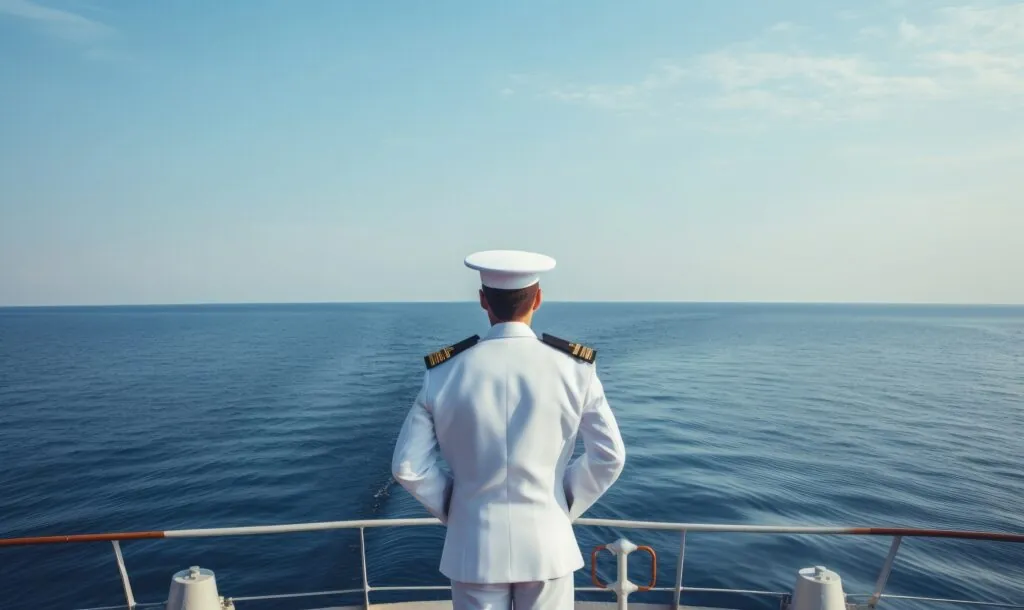Maritime Law’s Role in Sexual Assault Investigations
Sexual assault aboard a vessel—whether on a luxury cruise, a commercial ship, or a private yacht—is not only a violent crime but also a legal maze for the survivor. Unlike assaults on land, those that happen at sea fall under a unique mix of maritime law, flag-state control, and international agreements. For victims, this often leads to confusion about their rights, who to report to, and how to pursue justice.

This comprehensive guide explains how maritime law applies to sexual assault, the roles and responsibilities of cruise lines and law enforcement, and how victims can take action to protect themselves and their legal interests.
What Is Maritime Law?
The Definition and Scope of Maritime Law
Maritime law, also known as admiralty law, governs legal disputes and offenses that occur on navigable waters. This includes commercial shipping operations, navigation rights, and also criminal activities like theft, assault, and sexual violence.
The purpose of maritime law is to provide a uniform legal structure across different jurisdictions when incidents happen in international waters or involve multiple nationalities. It has both civil and criminal components and is shaped by centuries of legal precedent and modern international treaties.
Flag State Jurisdiction: Who Makes the Rules on Board?
Every vessel is registered under a country—its flag state—and this registration determines which national laws govern incidents onboard. For example, a ship flying the Panamanian flag is subject to Panamanian law, even if the vessel is sailing off the coast of Europe.
The flag state is responsible for enforcing laws on the vessel, handling investigations, and ensuring compliance with international maritime agreements. However, enforcement varies widely depending on the resources, political will, and legal infrastructure of the flag state.
Sexual Assault at Sea: Legal Classification and Coverage
How Sexual Assault Is Defined Under Maritime Law
Sexual assault at sea is treated as a criminal act under both domestic and international legal systems. Definitions may vary, but in general, sexual assault refers to non-consensual sexual contact, including rape, harassment, and coercive behavior. These actions violate not only criminal codes but also labor laws and safety regulations, especially if committed by a crew member against a passenger or colleague.
Crimes in International Waters
Once a ship is more than 12 nautical miles from shore, it enters international waters. Here, the flag state has exclusive legal jurisdiction over crimes. This means survivors must rely on the investigative and prosecutorial capabilities of the flag state, which may or may not have strong enforcement procedures.
Jurisdiction: Who Has the Right to Investigate?
Territorial Jurisdiction vs. High Seas
If a sexual assault occurs within a country’s territorial sea—up to 12 nautical miles from its coast—the coastal state has jurisdiction. Beyond this, the matter falls primarily to the flag state unless other factors apply.
Multiple Jurisdictions May Apply
In certain cases, multiple countries may claim jurisdiction. This is especially true if:
- The victim or perpetrator is a citizen of a different country.
- The vessel visited a port in a specific nation.
- The cruise line is based in a different country from the ship’s registry.
For example, a U.S. citizen assaulted by a British crew member on a Bahamian-flagged ship departing from Miami may involve at least three different jurisdictions: the Bahamas, the U.S., and the U.K.
Reporting Sexual Assault on Ships
Immediate Response: What Should Victims Do?
Victims should act quickly to preserve their safety and protect evidence:
- Seek immediate medical attention.
- Report the incident to onboard authorities.
- Document details: date, time, location, and descriptions.
- Avoid showering or changing clothes before a forensic exam if possible.
Onboard Security and Procedures
Most cruise ships have security personnel trained to handle criminal complaints, including sexual assault. Victims should request a private setting to provide their statement and ask for a medical examination conducted by trained professionals.
Cruise lines are also expected to document all reports and preserve physical and digital evidence, such as CCTV footage, door access logs, and witness statements.
U.S. Laws and Reporting Requirements
Under the Cruise Vessel Security and Safety Act (CVSSA), all cruise ships that call on U.S. ports must:
- Report sexual assaults and other serious crimes to the FBI and U.S. Coast Guard.
- Maintain a log of all reported crimes.
- Provide passengers with free and private access to law enforcement.
- Train staff in evidence preservation and victim support.
Role of Law Enforcement: Who Investigates?
Coast Guard and FBI Involvement
If the vessel is U.S.-flagged or the incident involves U.S. citizens, the U.S. Coast Guard Investigative Service (CGIS) or the Federal Bureau of Investigation (FBI) may take over the case. The Coast Guard may board the ship at its next port of call and begin collecting evidence.
Flag State Investigations
If the ship is not registered in the U.S., responsibility falls to the flag state. However, the quality and speed of investigations can vary widely depending on the country. Some nations have limited law enforcement capacity, making it harder to pursue justice.
The Legal Responsibility of Cruise Lines and Ship Operators
Duty of Care to Passengers and Crew
Cruise lines have a legal and contractual obligation to ensure the safety of all individuals aboard. This includes hiring qualified staff, preventing misconduct, and responding promptly to reports of criminal behavior.
Negligence and Legal Liability
A cruise line may be held liable if:
- It hired a crew member with a history of misconduct.
- Security systems like CCTV were not working.
- Previous reports were ignored.
- There was insufficient staff training in crime prevention.
Civil lawsuits can be filed for negligence, breach of contract, and emotional distress.
Legal Recourse for Victims: How to File a Lawsuit
Where to File
Most cruise ticket contracts include forum selection clauses, which specify where legal actions must be filed. These clauses often direct lawsuits to specific courts in Florida, particularly federal courts in Miami.
Even if you live in another state or country, you may still be required to file there, unless you can successfully challenge the clause with legal counsel.
Types of Damages Recoverable
Victims may sue for a range of damages, including:
- Medical expenses.
- Therapy costs.
- Lost wages or travel expenses.
- Pain and suffering.
- Punitive damages, in cases of extreme negligence.
Challenges in Investigating Maritime Assault
Evidence Preservation Is Often Inadequate
At sea, evidence collection is often delayed. Shipboard authorities may lack the training to secure a crime scene properly. Delays in docking mean that biological samples, witness testimony, or digital logs could be lost or tampered with.
Witness Cooperation
Crew members may fear losing their jobs or being deported if they testify. Passengers may be difficult to locate once they disembark. Language barriers and cultural stigma further hinder cooperation.
Victims’ Rights and Support Resources
Organizations That Help
Victims can reach out to:
- RAINN (Rape, Abuse & Incest National Network), which offers 24/7 support and connects victims with attorneys.
- International Cruise Victims (ICV), an advocacy group that supports survivors and promotes policy change.
- State Departments or embassies, which provide legal aid and emergency repatriation.
Legal Rights You Should Know
Regardless of where the assault occurred, victims have the right to:
- Access medical care.
- Make a report in private.
- Seek legal counsel.
- Pursue civil damages.
- Refuse to participate in a ship’s internal investigation.
Frequently Asked Questions
Can I sue a cruise line for sexual assault?
Yes, victims of sexual assault aboard a cruise ship can file a civil lawsuit against the cruise line if the company was negligent or failed to take appropriate measures to prevent or respond to the incident. For example, if the cruise line ignored prior reports of harassment, failed to provide adequate security, or did not properly train its staff, these could all be grounds for liability. Victims may sue for damages including emotional distress, medical expenses, and lost wages.
Who investigates sexual assault on ships?
The investigation of a sexual assault at sea depends on several jurisdictional factors. Typically, the flag state—the country where the ship is registered—has primary legal authority. However, when the assault involves a U.S. citizen or occurs on a cruise ship that departs from or arrives in a U.S. port, agencies such as the Federal Bureau of Investigation (FBI) and the U.S. Coast Guard may become involved. These agencies are responsible for collecting evidence, interviewing witnesses, and enforcing federal laws applicable to maritime crimes.
What happens if the ship leaves before the police arrive?
If the ship has already left port before authorities can intervene, investigations are often delayed and the collection of timely, accurate evidence becomes more difficult. In most cases, law enforcement will board the ship at its next port of call, which may be in another country. During this time, it is critical for victims to report the incident to ship security, request that evidence be preserved, and maintain personal documentation of what occurred. The cruise line is obligated under various laws to cooperate with investigations and preserve the crime scene.
Does U.S. law apply to foreign cruise ships?
Yes, in many cases U.S. law applies even to foreign-flagged cruise ships. If the ship embarks or disembarks in a U.S. port, or if the incident involves a U.S. citizen, then U.S. maritime and criminal laws may apply. Specifically, under the Cruise Vessel Security and Safety Act (CVSSA), foreign ships that operate in or out of U.S. territory must comply with specific safety, reporting, and security standards.
How long do I have to take legal action after a sexual assault on a ship?
The time frame for legal action depends on the type of case and the applicable jurisdiction. Under U.S. maritime law, victims typically have three years to file a civil claim, but some cruise ticket contracts shorten this window to one year or less. Additionally, contracts often include forum selection clauses that specify where the lawsuit must be filed, such as in federal court in Miami, Florida. It is important to consult with a maritime attorney as soon as possible to ensure deadlines are not missed and that the correct venue is chosen for the case.
Contact The Cruise Injury Law Firm Today
Sexual assault at sea is a deeply serious matter that deserves full legal recognition and support. While maritime law presents significant challenges, survivors have rights and paths to justice. From reporting the incident correctly to seeking civil damages, there are avenues to ensure that you are heard and supported.
If you or someone you know has been assaulted at sea, contact The Cruise Injury Law Firm immediately. Legal deadlines can be short, and shipboard contracts may limit your options if action isn’t taken quickly. Our specialized attorney can guide you through the complex legal system and help secure the justice you deserve.






